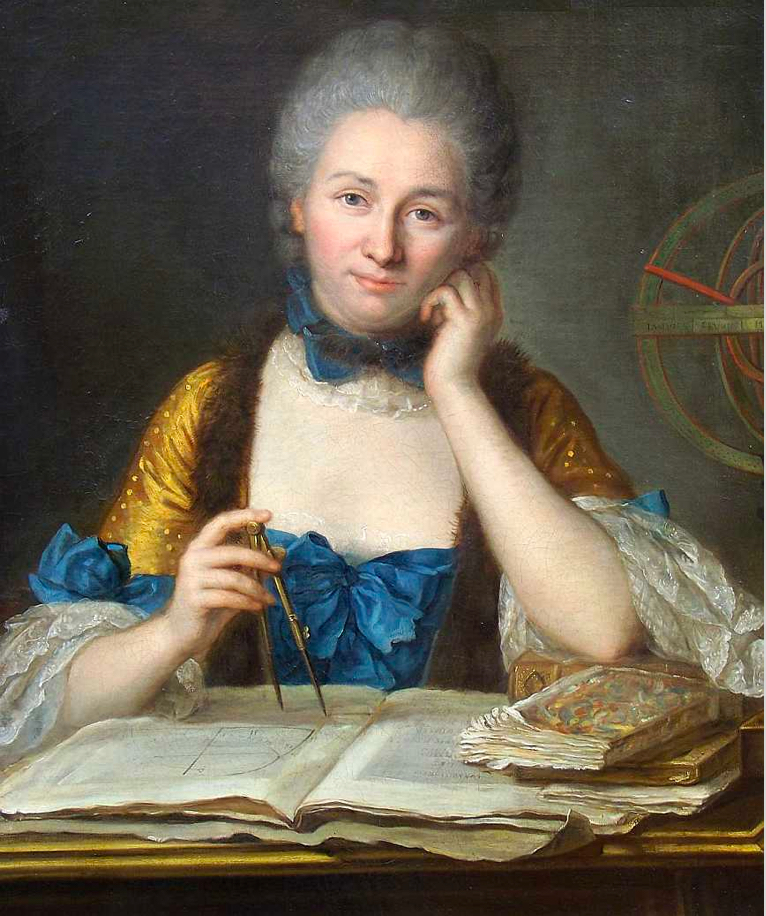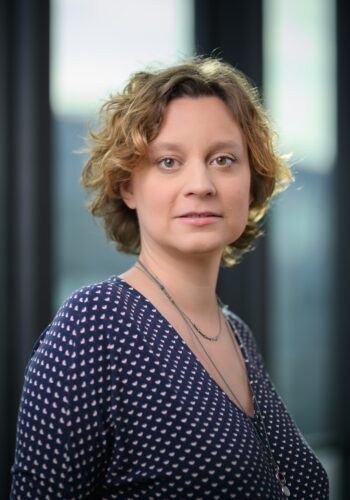Why a career in tech?
When I was a little girl, I wasn't very good at school, that lasted quite a long time, until I discovered that I liked mathematics, especially problems and geometry. At home, my father had an old MO5, we spent hours waiting for the programs to run but what I really enjoyed were the introductory games in Basic. I didn't know that I was coding at the time, I would write lines and when I came out, I would have a flag displayed or music coming out of the old speakers. I found that fun.
Your professional experience?
Obviously, as I liked maths, I followed a scientific course, I wanted to become a teacher. After the DEUG, I decided to pivot slightly to do a computer science course and I discovered artificial intelligence. It was a bit of maths, logic and a futuristic vision of computing. I went on to do a thesis, which I obtained in 2007. I finally joined the private sector as a development engineer in a small AI SME, and then I moved on to innovation management. In 2015, I created with colleagues a deeptech startup in AI and finally today I co-direct an association, the Hub France IA, which federates the French AI ecosystem.
Your first experience with technology?
During my thesis, I developed, in PROLOG, a system able to guarantee a certain control of AI behaviours (in multi-agent systems). But my first professional experience in the private sector was at MASA Group, where I developed the AI behaviours of a simulator and directly at the heart of the AI engine, in Lua and C++.
What do you do today, and why?
Today, my role is to accompany companies, whatever their level of maturity in AI, to accelerate the industrialization of AI projects at all levels, for all businesses, wherever it makes sense!
Your strengths in this role?
My technical and scientific knowledge, as well as the fact that I created my startup, managed the commercial part, and followed up our customers, helps me a lot to understand the stakes of companies, whether they are users or suppliers of artificial intelligence. I have been immersed in the world of AI for more than 20 years, which allows me to bring a certain expertise that is interesting for the members of our association.
Past challenges, failures and disappointments?
I think I missed a lot of things in my life, but that's also what makes you progress and become better! Thesis research work is very formative, you always question yourself, and this remains so today. I have acquired reflexes that make me not afraid to try because failure is not problem. I've also taken up quite a few challenges, but I think that's how my life is, I like challenges, that's what makes me go forward.
Best moments, successes you’re proud of?
I was so proud to create my startup, to make it grow, each new year spent, each new client who trusted us, each new member who joined the team, it was a new success. I have a lot of good memories of those years when everything was to be built and it was so important that we were all united to move forward.
People who helped, influenced -or made your life difficult?
Even if there were few women in computer science, I had several female teachers in Artificial Intelligence who I'm sure showed me the way and made me want to move forward. I think I've been lucky enough to be well surrounded in my professional life, it helps to feel comfortable to progress, and I've met a lot of people who have given me great opportunities!
Your hopes and future challenges?
I have only one desire, to continue in artificial intelligence! Who would have thought in 2002 that 20 years later this sector would be attractive when at the time we were not supposed to talk about AI. I believe that the greatest challenge today, which is not only mine, is to ensure that we do not fall back into an AI winter.
What do you do when you don’t work?
I have two children aged 8 and 2, so outside of work I'm mostly with them and my family, it's important. I also do archery, it's perhaps the only passion I've kept with me since childhood, even though I haven't always done it regularly over the years, I always come back to it.
Your heroes -from History or fiction?
I think my favourite fictional heroine is Wonder Woman. It goes back to my childhood, when I used to dress up as Wonder Woman at my grandmother's house during the summer holidays. I felt invincible. Decades later, when I went to see the DC film in the cinema in 2017, I felt the strength of this woman who used to dazzle me as a child rise in me.
A saying or proverb you like in particular?
I always say to my daughter: "You must never give up. It's not serious to make a mistake, what's serious is not to try". Never being afraid of failure is what I think allows us to move forward and create beautiful things.
A book to take with you on a desert island?
I'll take three that don't go without each other: Phenix, Graal and La Malédiction de la Licorne by Bernard Simonay. These books made me love fantasy when I was a teenager. But if I had to take only one it would be Bram Stoker's Dracula!
A book to take with you on a desert island?
It's not because you're a woman that you can't succeed in tech, you just must believe in it, you just must live it as a passion. You must listen to yourself. You should only listen to those who are there to help you go further and ignore the others.



